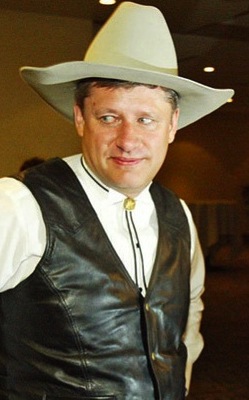With the PQ back in power in Quebec City, no matter how tenuously, one prays Stephen Harper can overcome his tin Albertan ear for the aspirations of Quebeckers and his Americanized party’s predilection to appeal to the basest instincts in English Canada.
The auguries are not promising.
Face it, “just saying No” is no strategy to save a country. Nevertheless, just saying No is apparently the best Harper can come up with for dealing with a Parti Quebecois government led by Pauline Marois — which we now have thanks to Jean Charest’s cynical campaign to save his rotten provincial government’s Canadian bacon by pleading national unity.
Prime Minister Harper is generally given credit in the English Canadian media for being some kind of Conservative savant for his ability to use wedge issues and the Karl Rove Republican campaign handbook to cobble together a rightward tilting coalition in English Canada. It was his good luck and the country’s ill fortune that he started this effort at a time the Bloc Quebecois dominated Quebec’s federal ridings, making his coalition possible by shutting non-Tory federalists out of Quebec.
That would change in the great Orange Wave of 2011, but alas that federalist swell crested too soon.
Never mind arts funding, health care, the long gun registry, Ottawa’s “alarming indifference” and a thousand other cuts at the hands of the Conservative Party’s trolls that drove Quebeckers batty, now that we’ve reached a crisis, having a guy with his hand on the national tiller whose idea of navigation is to head for the sharpest rocks in hopes of scraping off a few more votes does not inspire confidence about the future.
Harper may not have been born in Alberta, but it’s his adopted home and he’s absorbed the self-centred post-Confederation zeitgeist of the place.
This is a corner of the west where a substantial number of folks, though thankfully not all, will look you in the eye and wonder why the hell Quebeckers refuse to speak English like the rest of the world. (Most Albertans have heard this sentiment expressed in the bosom of their own families, and heaven help you if respond by noting that they don’t speak English in China.)
But these are Harper’s core voters, and it’s a lot to ask that he abandon them when his ability to cling to power a few years hence may depend on their continued loyalty.
This led the Globe and Mail to muse recently that Harper may need Opposition NDP Leader Thomas Mulcair to hold the country together.
Mulcair may indeed be up to that task, but one imagines he would be less effective as Harper’s sidekick than in other possible leadership roles.
It’s fair to suggest the party that now most needs Mulcair’s leadership is Canada, not the prime minister’s squalid coalition of neocons, social conservatives, gun nuts, union-haters, quasi-separatist states’ rights advocates and pipeline evangelists.
“This is a good moment for Harper to define his own vision for Canada,” the Globe squeaked in an editorial rushed into print after last night’s PQ victory. But other than creating a globalized neocon dystopia, who says he even has one?
At this point in our country’s journey, we have to ask ourselves: Can Canada afford a national leader with no national vision?
This post also appears on David Climenhaga’s blog, Alberta Diary.



